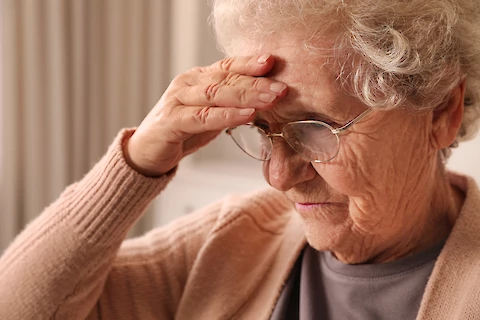
Chronic pain is a reality for many seniors, and as their adult children, we need to know how to help our loved ones manage it effectively. Chronic pain is defined as persistent or recurrent pain lasting longer than three months and can significantly impact a senior's quality of life.
In this blog post, we'll explore common causes of chronic pain in seniors, share various ways to manage it (including medical and non-medical methods), and offer tips on how to communicate with healthcare providers to ensure the best course of action is taken. We'll also give some advice on how family caregivers can offer emotional support during this challenging time. Ready to get started?
Common Causes of Chronic Pain in Seniors
A wide range of conditions can contribute to chronic pain in seniors. Some of the most common causes include:
- Arthritis, which leads to joint pain and stiffness
- Back pain, often caused by issues like spinal stenosis or degenerative disc disease
- Neuropathic pain, which results from nerve damage due to diabetes or other factors
- Cancer-related pain, which can arise from the disease itself or its treatments
- Post-surgical pain from procedures such as knee or hip replacements
Ways to Help Manage Chronic Pain
There are various medical and non-medical methods to help seniors manage chronic pain. These methods can often be combined to find the most effective approach for each individual.
Medical Methods
Medical approaches, such as over-the-counter pain relievers or prescription medications, can help reduce inflammation and alleviate pain. Topical pain relievers, like creams or patches, can also provide relief for localized discomfort. Physical therapy can help improve mobility and function, while injections or nerve blocks can target specific areas of pain. Assistive devices, like canes or braces, can also provide support and alleviate pressure on painful joints or muscles.
Non-Medical Methods
Non-medical methods can be an important complement to medical treatments. Encourage your senior parent to exercise regularly and physically, as it can help improve muscle strength and flexibility. Massage therapy can offer relaxation and relief from muscle tension, while acupuncture has been shown to help with various types of pain. Mind-body techniques like meditation or deep breathing exercises can help reduce stress and improve pain management. Experimenting with heat or cold therapy, using heating pads or ice packs, can also help identify which method provides the most relief. Lastly, maintaining good sleep hygiene and addressing any sleep disturbances can improve overall well-being and pain tolerance.
Communicate With Healthcare Providers
Clear communication with your senior parent's healthcare provider is essential in finding the best pain management plan. Some tips for effective communication include preparing questions in advance, keeping a pain journal to document symptoms and their impact on daily life, being honest about the severity of pain, and discussing concerns about medications and side effects. Don't be afraid to seek a second opinion if you feel it's necessary.
Offer Emotional Support
Managing chronic pain is emotionally challenging for seniors, as it may lead to feelings of frustration or hopelessness. As a caregiver, providing emotional support is vital in helping your senior parent cope.
Encourage open communication about their feelings, and provide empathy and a listening ear. Help them practice stress management techniques like guided meditation or deep breathing exercises. Finally, support them in maintaining social activities and hobbies to prevent isolation and improve their overall mood.
We Can Help
If you are in the San Mateo, Redwood City, Burlingame, or Millbrae areas and need assistance with providing the best quality of life for your senior loved one, contact us at Senior Helpers San Mateo. We offer in-home assistance with day-to-day self-care tasks, companionship, respite care, and even transportation to and from important appointments. With our support, you'll be better able to help your loved one conquer chronic pain.